TL;DR
Cyberpunk fans, get ready for Dex on Switch! This indie Metroidvania offers a gritty cyberpunk world with bionic heroes and a compelling premise. You'll platform, hack, and fight through Harbour Prime, upgrading Dex and exploring a tech-dystopian landscape. While it aims for a rich, multi-genre experience with great atmosphere and dialogue, Dex struggles with execution. Expect inconsistent aesthetics, frustrating platforming, imprecise combat, and limited impact from narrative choices. Despite its ambition and moments of potential, the game's reach exceeds its grasp, leading to a mediocre but playable experience. It might be worth a look if you're starved for Switch releases and can look past its flaws. Dive into the full review to see if this 2D Cyberpunk/Deus Ex dream is for you!
With CD Projekt RED’s Cyberpunk 2077 slated for release this fall (after previous delays), Qubic Games is re-releasing Dex, a cyberpunk action RPG Metroidvania title, in an improved version for the Nintendo Switch. Originally launched on PC in 2014, we’ve analyzed the game to assess its current viability.
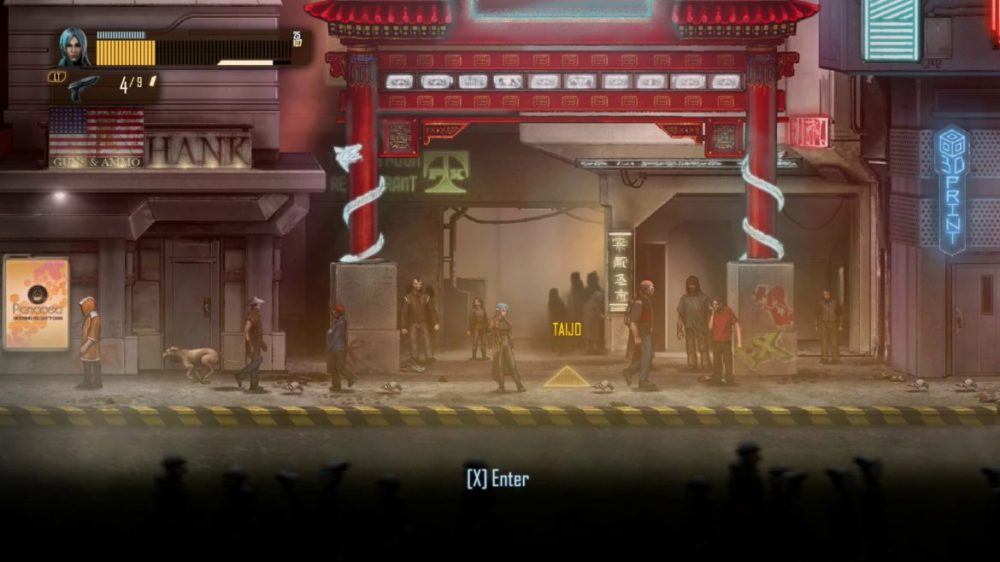
Players assume the role of Dex, a blue-haired protagonist with bionic enhancements, tasked with confronting a malevolent organization threatening her home, the futuristic metropolis of Harbour Prime. Gameplay involves platforming, hacking, climbing, and combat, augmented by RPG elements such as upgrades and inventory management.
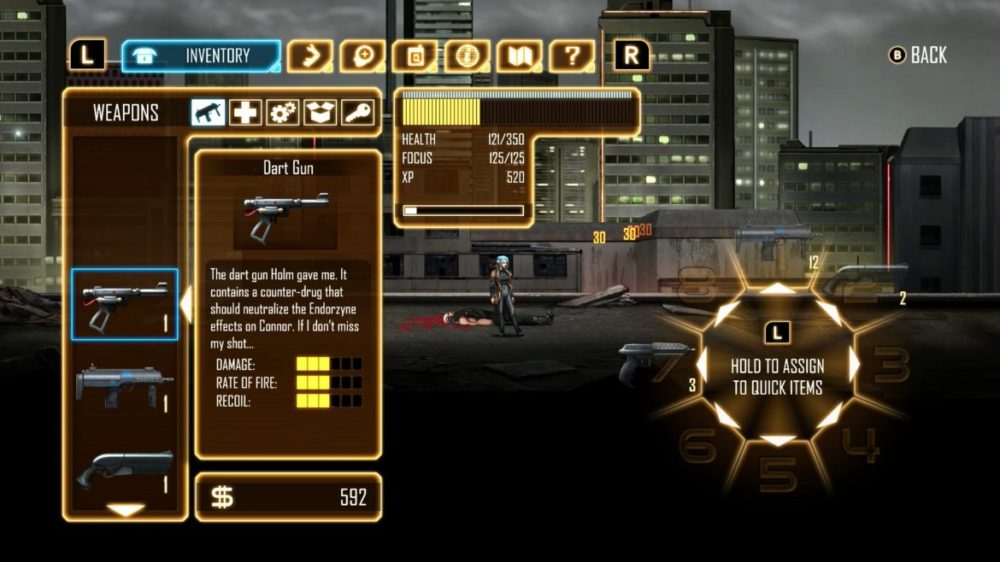
Dex exhibits an appealing approach, initial impression, and ambition. It strives to synthesize multiple genres into a comprehensive cyberpunk experience, rich with references, atmospheric dialogue, and stylized tech-dystopian environments. However, its reach exceeds its grasp, resulting in a somewhat mediocre execution across several aspects. While the game offers moments of brilliance, persistent issues ultimately detract from the overall experience.
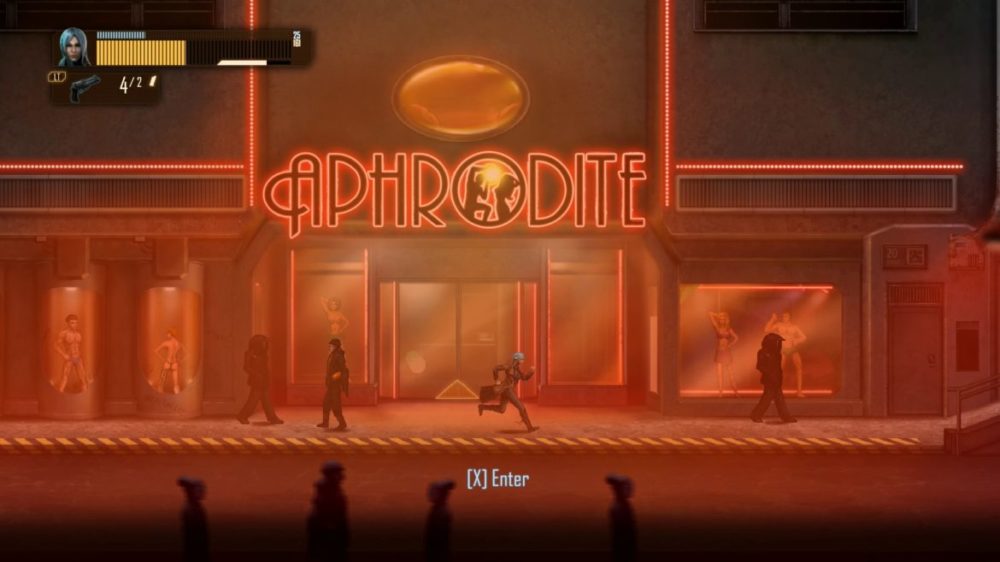
Regarding the design, the aesthetic is stylish, albeit inconsistent, but functionally flawed. An attempt to create atmosphere (and potentially conserve resources) involves shading areas outside the player’s immediate focus. This, combined with questionable level design, often leads to unintended falls. Seemingly straightforward jumps can prove problematic. While Dex is portrayed as an agile character, the core gameplay evokes the classic C64 title Impossible Mission. However, emulating dated mechanics is not always desirable. For instance, the protagonist’s slow climbing speed becomes particularly frustrating given the frequency of climbing sequences.
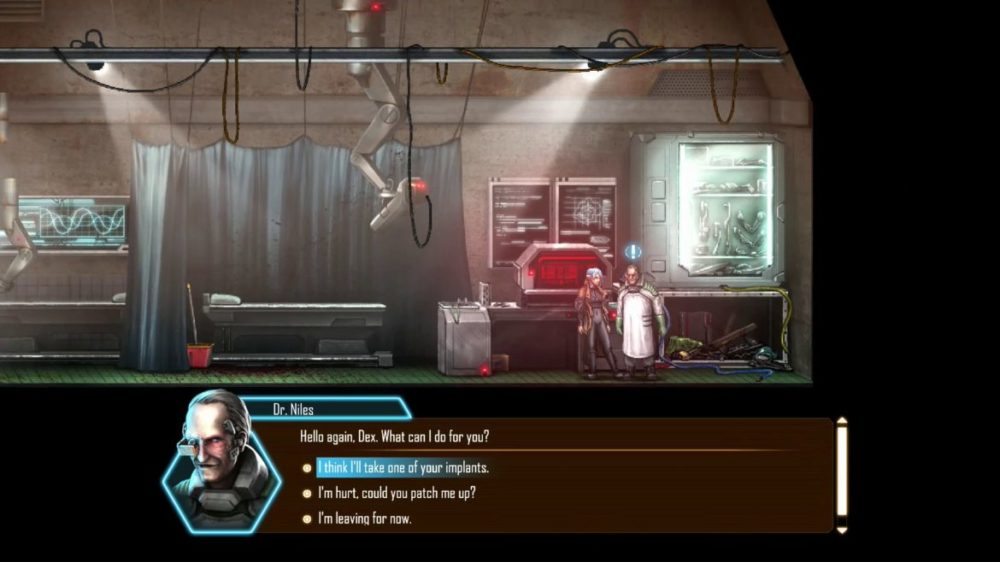
The combat system also underwhelms, despite its prominence within the game. Stealth assassinations offer the most satisfying encounters. While options for punching, jump-kicking, and blocking exist, the controls feel imprecise, particularly with the Nintendo Switch’s analog sticks. A digital directional pad would improve accuracy. Combat encounters are often more challenging than necessary, making evasion a viable strategy. While dialogue options and “charisma” development are present, their impact on the plot feels limited, despite the game’s claims of an “open world” and “non-linear” narrative.
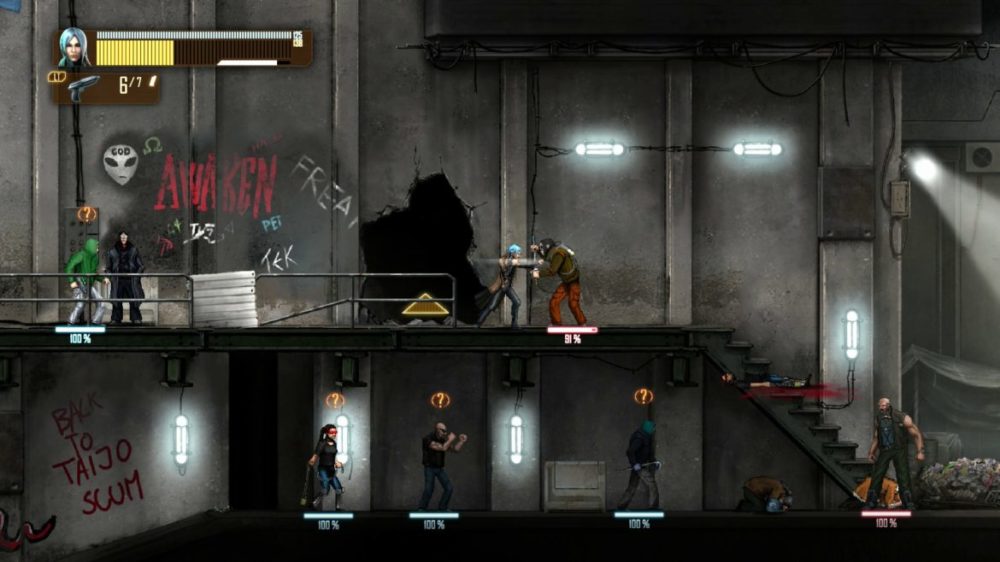
Assessing the extent of enhancements in the Switch version is difficult without prior experience with the original release. Visually, Dex is adequate for an indie title, and performance is generally smooth. However, even with the largest text setting enabled, text appears small in portable mode, suggesting that a large-screen TV is preferable. While dialogue is fully voiced, reading response options can be challenging in handheld mode.
The ambition behind Dex is commendable, and a more polished execution would have been welcome. The primary issue lies in Dreadlocks Ltd’s attempt to encompass too many genres without achieving excellence in any single area. Dex remains playable and may appeal to fans of the genre(s) willing to overlook its shortcomings. A Bladerunner– and Deus Ex in 2D-inspired experience lies beneath the surface, yet its ambition ultimately exceeds its capabilities. For 150-200 SEK, it might be worth exploring, especially given the current scarcity of new releases on the Nintendo Switch.
